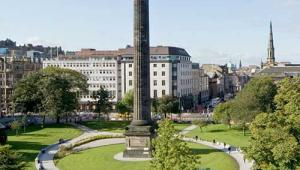21 May 2004
The government last week launched a crackdown on so-called health tourism, unveiling plans to deny almost all NHS treatment to foreign visitors and failed asylum seekers.
The proposals are the latest salvo in the battle being fought by ministers to counter tabloid-fuelled accusations that they are presiding over a 'soft touch' Britain.
The plans come in the wake of the immigration service chaos that cost Beverley Hughes her ministerial job, and the government's eleventh-hour U-turn on restrictions for citizens of new European Union countries.
Against this background, the desire to regain some credibility on the thorny issue of immigration and the treatment of foreign nationals is understandable. But the health care professionals who will be expected to establish the right of individuals to free care are already making it clear they do not intend to become an informal arm of the immigration service.
The GPs' committee of the British Medical Association said: 'Doctors in primary care should not be asked to police the system. The decision on who is eligible for free treatment is one for the government to take.'
Their concern was echoed by Dr Gill Morgan, chief executive of the NHS Confederation. 'It is of paramount importance that people who are in real need can get access to care, and any new system must not be over-complicated for GPs, who are already facing a challenging agenda.'
The government's proposals, outlined by health minister John Hutton, are intended to prevent overseas visitors and failed asylum seekers from gaining free access to treatment by a GP. NHS hospitals already check eligibility and charge non-residents for treatment, but do not review the status of patients referred by GPs.
Currently, doctors have discretion over whether to accept a foreign national at their practice and give them free care. But under the plans, GP practices will have to ask for documentary proof from new patients, such as a passport or valid work permit, that they have British residency and are entitled to use the service.
Those judged ineligible will only be able to get free treatment for emergencies or for communicable diseases that pose a threat to public health. For all other conditions, patients will have to pay for treatment or go without. False claims for free treatment will be chased up by the NHS Counter Fraud Service.
Hutton denied that the proposals would lead to people in need being denied essential treatment. 'We are not going to chase people into the A&E room, asking for a credit-card imprint before we save their lives,' he said.
'This is not the US. We need to toughen up the rules; we are not going to lose sight of our common decency and humanity.'
Somewhat curiously, the government admits it has no idea of the scale of the problem that these proposals are intended to address. Hutton said it was difficult to calculate the number of 'health tourists' but that anecdotal evidence pointed to a significant strain on the NHS.
'We have 5 million new registrations each year with family doctors and there is a real danger that NHS resources are being used on people who are probably not entitled to them,' he said.
But Morgan, who heads the umbrella body for health service organisations, barely managed to conceal her suspicion of the motives underpinning the plans, saying: 'New regulations should be introduced on the basis of genuine evidence, rather than politically exaggerated estimates of the cost.'
The Refugee Council is also alarmed. It says some GPs are already reluctant to accept asylum seekers as patients and fears these proposals will exacerbate the situation. Apparently they are put off by the extra costs incurred, for example of hiring interpreters, and the difficulty of meeting performance targets when catering for a population group with disproportionately high rates of ill health.
A spokeswoman said the plans could result in refugees who were entitled to free care being denied access to it. 'There is a lot of misunderstanding among health professionals about asylum seekers' entitlement to health care already.
'These plans will affect destitute and vulnerable people, many of whom have poor living conditions which exacerbate their health problems. That will be dangerous for individuals and potentially for the health of the population as a whole,' she said.
The government's consultation on the plans runs until August 13. If ministers want to avoid another immigration-related debacle, they would be wise to listen to those who will have to pick up the pieces if things go wrong.
PFmay2004


















